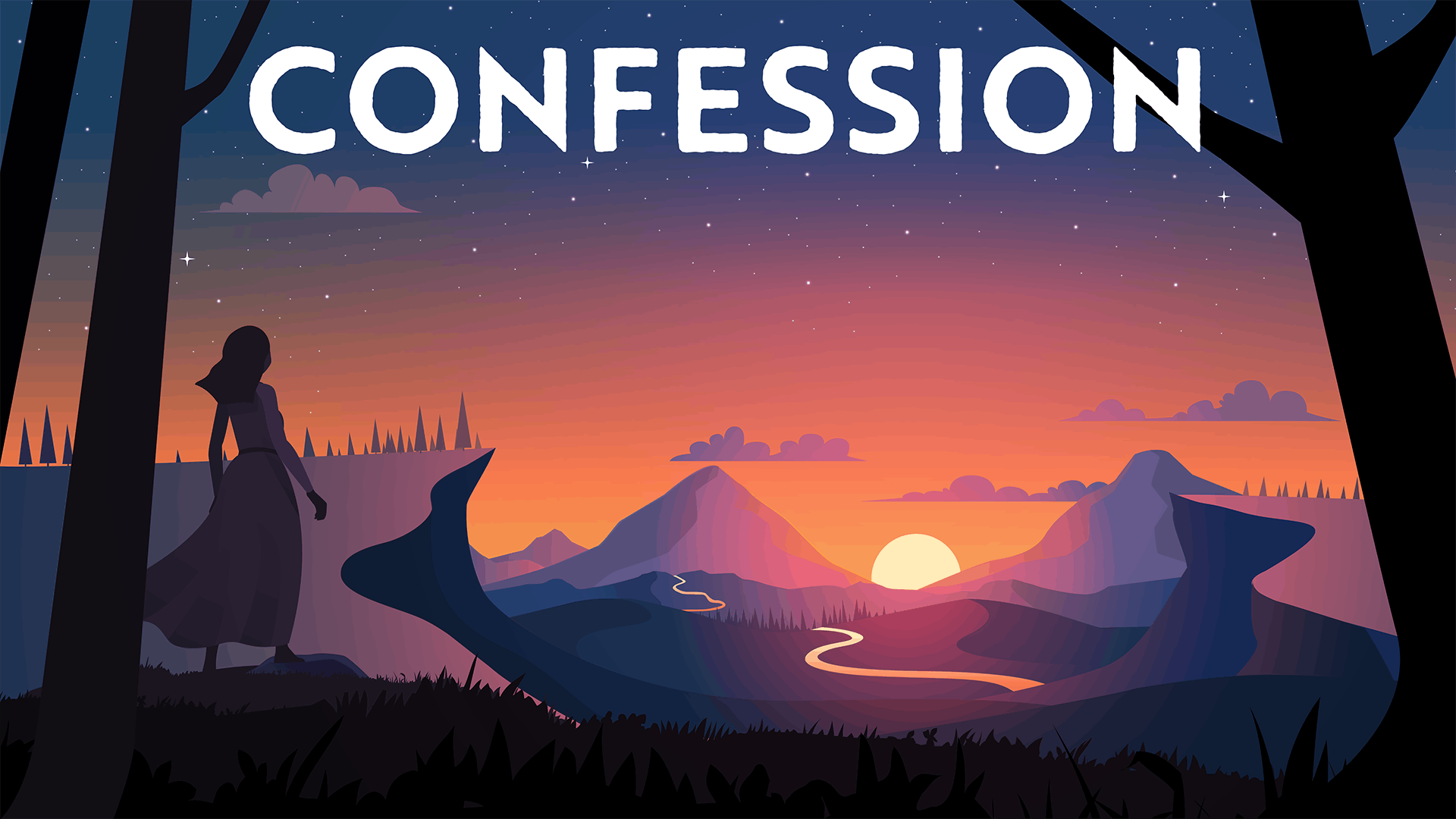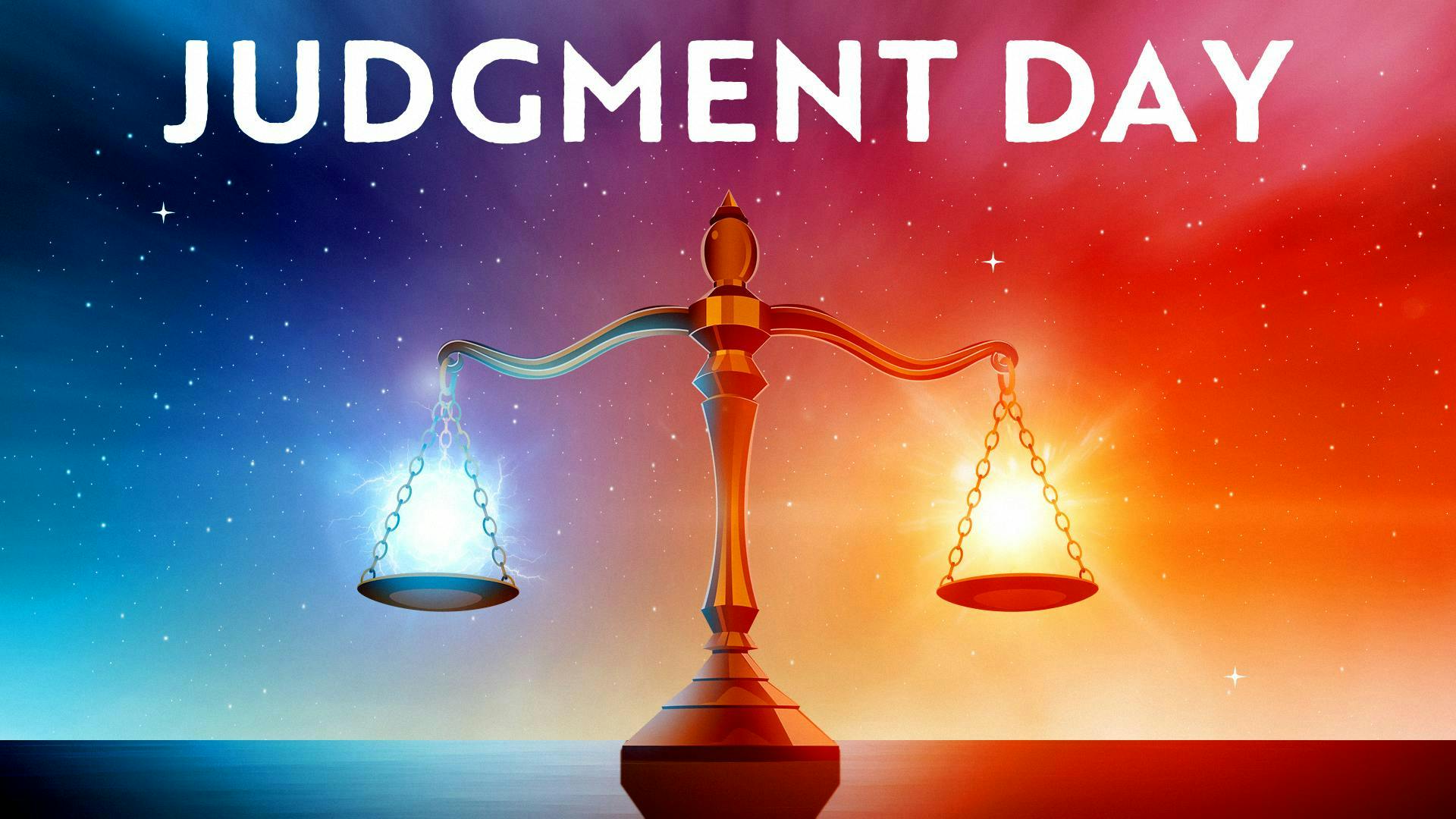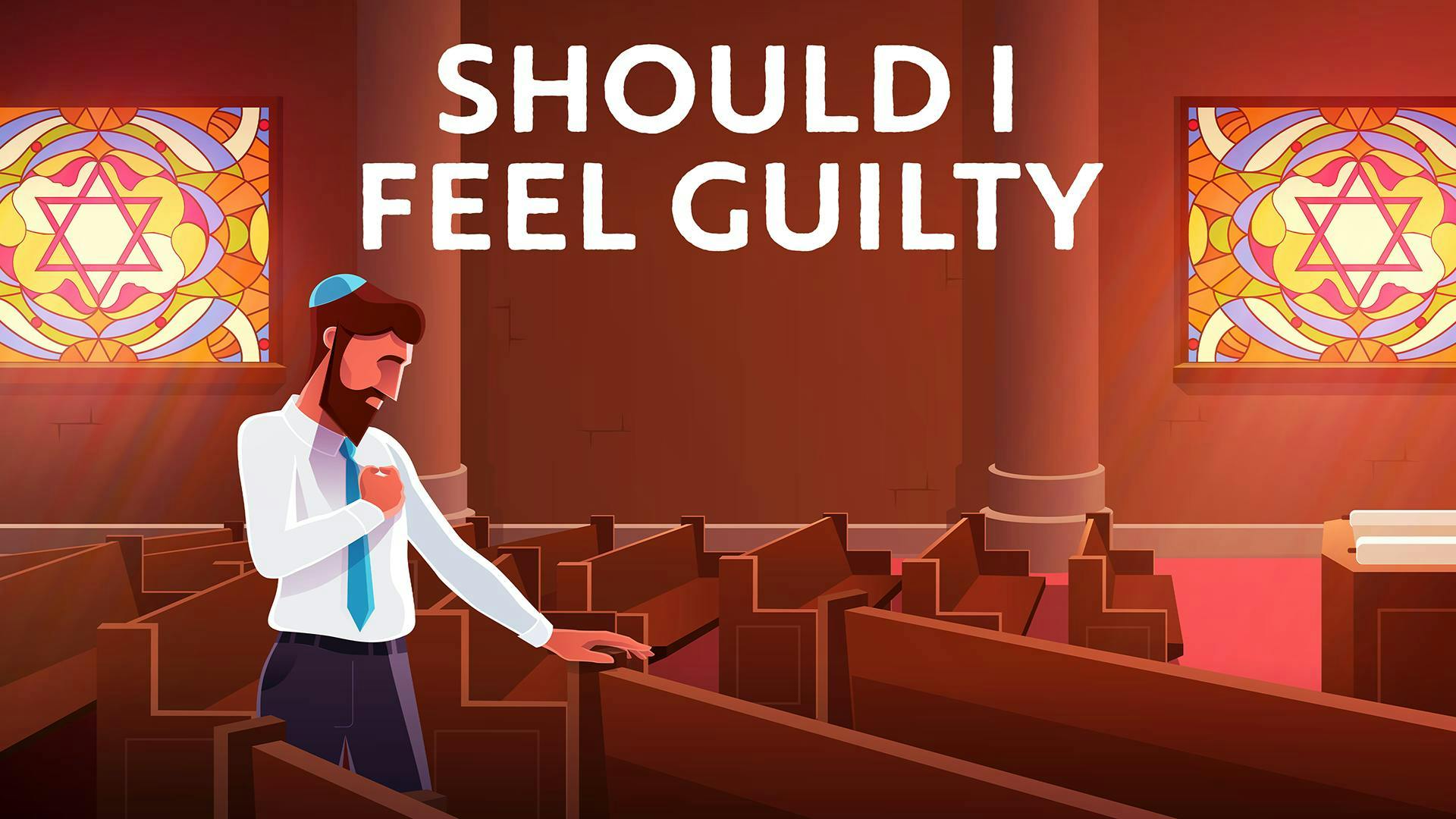Tisha B’av Torah & Haftarah Readings
How the Torah and Haftarah Readings Set the Tone for Tisha B’Av
By Adina Blaustein | 27 June 2024 | 10 Minute Read
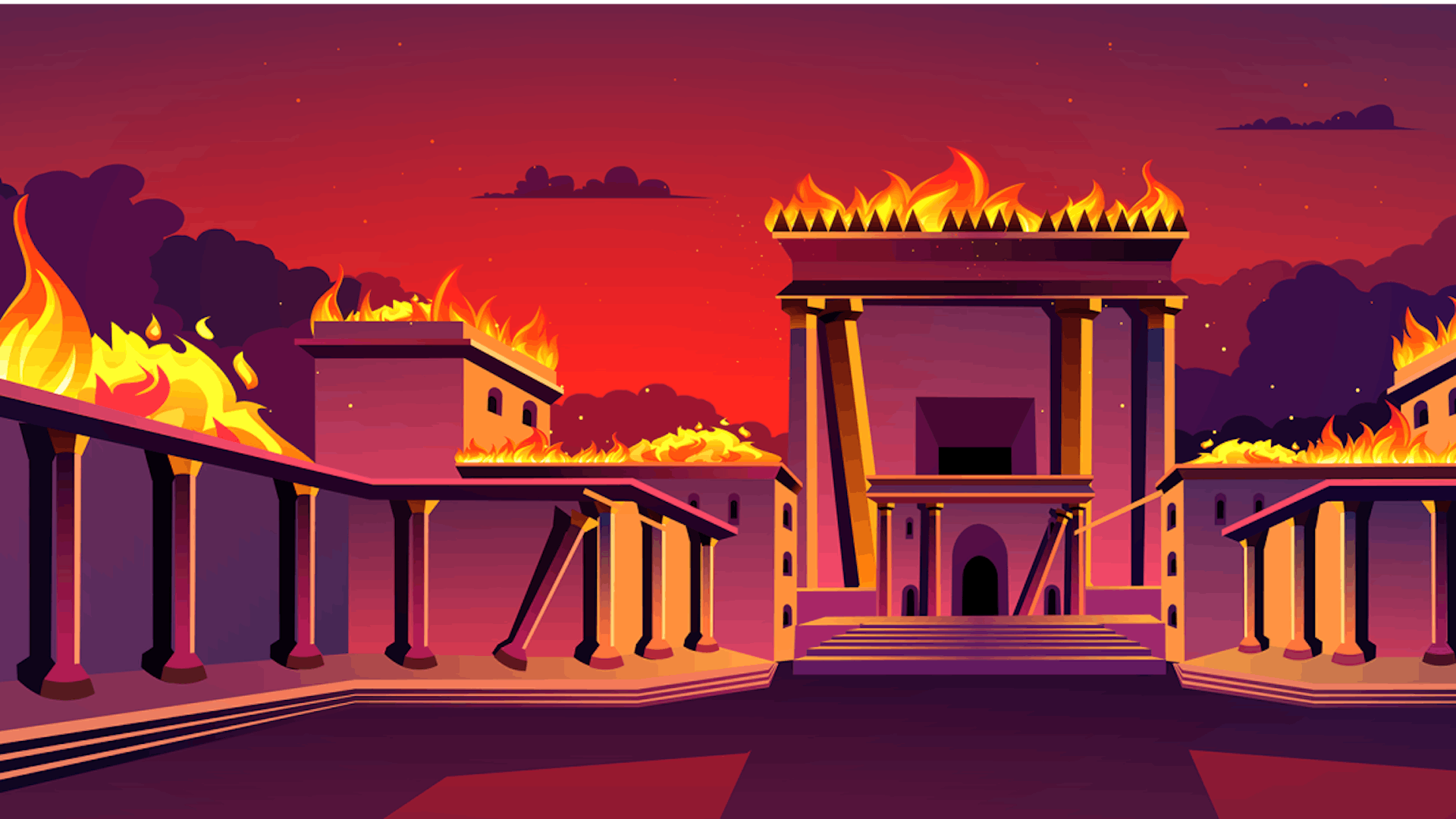
Looking for more?
We have hours of delightful videos and podcasts to enhance your Yamim Noraim experience.
Readings for Tisha B’av Morning
To set the tone of loss and lamentation for Tisha B'av morning, we read Deuteronomy Chapter 4:25-40 as the Torah reading and Jeremiah Chapter 8:13-23 as the accompanying haftarah. The Torah readings underscore the deserved nature of the destruction—God warned of the dire consequences for turning away from Him.
Overview of the Torah Reading for Tisha B’av Morning
The Torah reading from Deuteronomy chapter 4, verses 25-40, vividly portrays the consequences of Israel’s disobedience and turning to idol worship. As part of his final address to the people, Moshe warns: “When you… become complacent in the land, if you act corruptly by making an idol in the form of anything, doing what is evil in the sight of the Lord your God, and provoking him to anger… you will soon utterly perish from the land that you are crossing the Jordan to occupy; you will not live long on it, but will be utterly destroyed” (Deuteronomy 4:25-26).
On Tisha B'Av, we confront the tragic reality that Moshe’s words were not just a warning… but a prediction. The first Temple was destroyed because generations of Israelites didn’t listen to Moshe’s prediction. They turned to idol worship, and disregarded the commandments, and therefore the Temple was destroyed and they were expelled from Israel [2 Kings 17:7-8]. The passages we read in the Torah ask the listener to confront this challenging text and the possibility that the horrific suffering caused by the loss of the Temple was in some part of Divine consequence.
However, acknowledging this profound truth also brings us face to face with the harsh and horrible aspect of divine justice. To mourn the loss of life, home, and nationality, only to be confronted with the notion that it is their own fault, is a heavy burden. It is a stark reminder of the severity of divine justice, where the collective failures of a people lead to such devastating outcomes.
Yet, within this expression of divine justice, there is also profound hope. Because where there is a covenant with terms, there is potential for repair. This realization offers a sliver of comfort amidst the grief, reminding us that we can take constructive steps forward and repair the relationship. The same covenant that holds us accountable also provides the framework for teshuvah, repentance, and renewal. By acknowledging our past failures and committing to adhere more faithfully to God's commandments, we can rebuild and strengthen our bond with the Divine, transforming Tisha B'Av into a time not only of mourning but also of hope and potential for renewal.
The Torah reading, with its deeper reflection on their relationship with God and their responsibilities within that covenant, makes the mourning on Tisha B'Av not just about the past destruction, but also a time of introspection and a commitment to renewal and adherence to divine commandments. The Torah reading offers a glimmer of hope, emphasized when Moshe reassures the people that even in exile they can return to God, who "will not forsake you, destroy you, or forget the covenant made with your ancestors" (Deuteronomy 4:31). This passage underscores the enduring promise of divine mercy and the possibility of reconciliation even after suffering and exile.
For a deeper exploration of the puzzling nature of Divine punishment, be sure to listen to the following podcast, by Aleph Beta scholar Daniel Loewenstein.
Overview of the Haftarah Reading for Tisha B’av Morning
The haftarah read on Tisha B’av morning, from Jeremiah Chapter 8:13-Chapter 9:23, sets a tone of utter despair. Jeremiah, the author of the Book of Lamentations, was a prophet who warned the Judeans of impending doom in the years leading up to the destruction of the first Temple in 587 BCE. In these verses, he paints a picture of utter destruction.
To underscore this horrific future surrounding the destruction of the Temple and the exile, Jeremiah uses repetitive language and imagery. One example is the word "אסף" (asaf), which usually means “to gather,” but can have other connotations as well. This word repeats three times throughout the haftarah, starting with the dramatic first verses of the haftarah: "I will make an end of them [אָסֹף אֲסִיפֵם] —declares GOD: No grapes left on the vine, No figs on the fig tree, The leaves all withered; Whatever I have given them is gone” (Jeremiah 8:13). The term, typically meaning "to gather," is now used with an alternate meaning by God to connote ruination. Additionally, in the subsequent verse, Jeremiah plays on the original connotation of the word. Produce is what is normally gathered, yet now God is gathering to destroy; the fruits are withered away.
This theme continues with another use of the word “אסף” (to gather), now used in its original connotation. In Jeremiah, we see a vivid and desperate scene where the Judeans gather in Jerusalem, a fortified city, in an attempt to save themselves from impending doom: “Why are we sitting still? Let us gather [הֵאָסְפוּ] into the fortified cities And meet our doom there…” (Jeremiah 8:14). This image is particularly poignant because it appears to foreshadow the Babylonian siege of Jerusalem. Initially, the city walls provided protection against the Babylonians, giving the people a false sense of security. However, as the siege continued, these very walls trapped the Judeans inside, cutting off their access to water and food. The gathering that was meant to save them ultimately led to their suffering and desperation, highlighting the tragic irony of their situation. As lamented in Eicha, many Judeans perished from hunger and starvation during this period.
The devastation reaches its peak in the haftarah’s conclusion, where the word “אסף” appears once more. Jeremiah laments that even the one thing abundant—the dead bodies—will remain uncollected, as there are not enough survivors to give them proper burial: “Thus says GOD: The corpses of men shall lie like dung upon the open field, like sheaves behind the reaper, with none to pick them up [וְאֵין מְאַסֵּף]” (Jeremiah 9:21-22).
Jeremiah’s Reflections on Divine Justice
Throughout the relentless destruction depicted in various forms throughout the haftarah, we glimpse into Jeremiah’s soul as he contemplates this brutal Divine punishment. This reflection is evident through a series of rhetorical questions scattered across the haftarah, forming a dialogue among God, the prophet, and the people.
Initially, God expresses sorrow over the people's abandonment of the covenant, saying: “Is not GOD in Zion? Is not her Sovereign in her midst? Why then did they anger Me with their images?” (Jeremiah 8:19). God is lamenting that, despite His presence among them, the people turned to idolatry, provoking His anger with their worship of false gods. However, Jeremiah, who had been warning the people for years about the consequences of their actions, does not take any pleasure in being proven right. Despite his prophetic vindication, he does not rejoice because the suffering and destruction he foresaw are now a harsh reality for his people.
Instead, he mourns right alongside his people: “Oh, that my head were water, and my eyes a fountain of tears! Then would I weep day and night for the slain of my poor people” (Jeremiah 8:22-23).
God’s response, conveyed through Jeremiah, echoes a resolute theodicy: “Shall I not punish them for these deeds?—says GOD—Shall I not bring retribution upon such a nation as this?” (Jeremiah 9:8). Through this rhetorical question, we witness a shift in Jeremiah's approach. He moves from prophesying imminent destruction to reflecting on its causes: “Is there anyone so wise as to understand this? …Why is the land in ruins?” (Jeremiah 9:11). Here, Jeremiah is responding as himself, no longer just delivering a warning but seeking to understand the deeper reasons behind the calamity. This shift indicates Jeremiah's acceptance of divine justice, as he acknowledges the link between the people's sins and the resulting devastation.Jeremiah seems to grasp that his role, amid the destruction, is to educate those around him about the true causes of their suffering and to lay a foundation for understanding.
The chapter concludes with God’s pronouncement, making the connection between disobedience and punishment explicit: “Because they have forsaken My teaching which I set before them, and have not obeyed My voice, nor walked in accordance with it” (Jeremiah 9:12-13). This statement underscores the theme of divine justice, emphasizing that the suffering and ruin are direct consequences of the people's abandonment of God's commandments. The destruction of the land is portrayed not as a random catastrophe, but as a just response to their forsaking of the covenant.
In this manner, Jeremiah’s haftarah on Tisha B'Av morning transcends mere wallowing; it becomes a profound dialogue—between the people, God, and the prophet—exploring the consequences of sin, the depths of sorrow, and the enduring justice of God's covenant. What makes Jeremiah's response compelling is his solidarity and empathy with the people, whom he knows have sinned. While the haftarah emphasizes that the suffering of the Jews was a consequence of their own actions, it does not call for callousness towards their plight. Instead, Jeremiah's own sorrow invites us to share in the grief and reflect on the unbroken covenant with God. It encourages us to look forward with hope, seeking steps to repair and renew our relationship with the Divine, even amidst the reminders of past transgressions.
More Resources Suitable for Study on Tisha B’av

What Rachel Imeinu Teaches Us About Mourning
Video series • Part 1 of 5 • 8 min
Mourning on Tisha B’Av may begin with the Temple, but it cannot end there. The familial conflict between Rachel and Leah offers a powerful lesson on how we can take the first steps towards fixing our national tragedy by addressing our personal relationships.
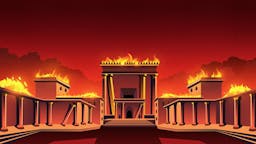
How Am I Supposed To Appreciate The Loss Of The Beit HaMikdash?
Video series • Part 1 of 7 • 9 min
It’s one thing to mourn the suffering of actual people, but how are we supposed to feel genuinely sad over the loss of a building?

Kamtza And Bar Kamtza: What Is Baseless Hatred, Anyway?
Video series • Part 1 of 5 • 3 min
When was the last time that you hated someone for absolutely no reason? Could it be we’ve been misunderstanding the true meaning of “baseless hatred” this whole time?

Why Does God Let Us Suffer?
Video series • Part 1 of 6 • 11 min
If God loves us, why does God let bad things happen to us? This question may be impossible to answer, but on Tisha b’Av it’s just as impossible to ignore.

Tisha B'Av after the Iran War
Video series • Part 1 of 7 • 12 min
Israel's victory over Iran feels like a pivotal historical moment. But it's not the first time that the Jewish nation has faced a situation like this one.
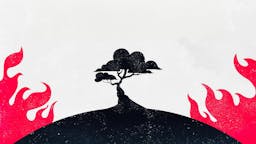
Megillat Eicha And Its Secrets
Video series • Part 1 of 2 • 57 min
What does Eicha have to do with the garden of Eden? At first glance, not much. But if we look closer, it turns out that the Megillah is actually echoing language first used in the beginning of Genesis. Uncovering the deeper meaning of this connection can shift the way you think about Tisha B’Av.
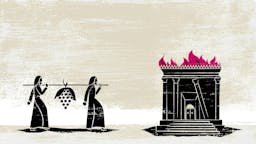
How The Sin Of The Spies Led To Tisha B’Av
Video series • Part 1 of 6 • 10 min
The first recorded tragedy of the 9th of Av occurred hundreds of years before the first Beit HaMikdash was even built. This surprising origin story sheds a whole new light on the meaning of the day.
More Tisha B'Av Content
What is Aleph Beta?
Aleph Beta is a unique kind of Torah library. Led by our founder, Rabbi David Fohrman, we are dedicated to high-level, textual Torah learning for adults that is intellectually and spiritually sophisticated, that enlivens your Jewish practice and helps you forge a deeper connection to God. Whether you’ve been learning in yeshiva for years or you’re just beginning your Torah journey, you’re sure to find something meaningful and surprising waiting for you here.
Browse our library of over 1,000 beautifully produced animated videos, podcasts, deep dive courses, and printable guides. Topics include the weekly parsha, Jewish holidays & fast days, laws & mitzvot, prayers, relationships, big philosophical ideas and more. Have something to say at the Shabbos table that will amaze your family and guests and bring deep meaning into their lives.
